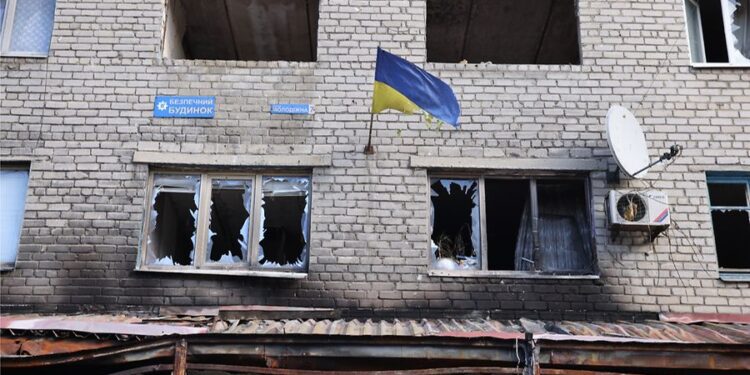Aroa Fandiño
European Law Expert and Collaborator at the Alternativas Foundation
O
ften overshadowed by the European Union (EU), the Council of Europe (CoE), the international organization charged with protecting democracy, human rights, and the rule of law in Europe, celebrated its 75th anniversary in 2024. Despite its low profile in the public eye, its contributions have tangibly shaped the lives of millions of people in Europe.
A Key Organization for the Continent
February 24, 2025, marked three years since the start of the Russian Federation’s large-scale aggression against Ukraine, an act that defied the fundamental principles of international law and European democratic values. In this complex context, the Council of Europe has played a crucial role in condemning the war of aggression, protecting human rights, and demanding accountability. Ukraine’s membership in this organization reaffirms its integration into the political community of the European continent and its commitment to the principles of democracy, the rule of law, and human rights.
Sanctions Since the beginning of the war, the Council of Europe has implemented decisive measures to support Ukraine and sanction Russian aggression. The first and most significant was the expulsion of the Russian Federation in March 2022, an unprecedented decision that reaffirmed that membership in the organization implies strict respect for its norms and principles. In parallel, the Council has developed a comprehensive action plan to strengthen the country’s institutional capacity, promote justice, and ensure the protection of human rights. This commitment was reflected in the 2023-2026 Action Plan, entitled “Resilience, Recovery and Reconstruction,” which supports Ukraine’s democratic reforms and contributes to the country’s aspirations for accession to the European Union.
Demanding accountability for crimes committed during the war has been one of the pillars of the Council of Europe’s strategy. At the Reykjavik Summit in May 2023, the Heads of State and Government agreed to the creation of a Register of Damages, which is supported by the majority of Council of Europe members, as well as several non-member countries, including Canada, Japan, and the United States, as a first step toward ensuring compensation for victims of Russian aggression. Progress has also been made in talks to establish a Special Tribunal for the Crime of Aggression against Ukraine, which aims to prosecute those responsible for the war, reaffirming the principle that there can be no impunity for international crimes.
Humanitarian Support
The war has generated an unprecedented humanitarian crisis in Europe, with millions of Ukrainians displaced within and outside the country. In this context, the Council of Europe Development Bank has allocated significant funds for emergency aid and support for the integration of displaced persons. Furthermore, the Council of Europe Commissioner for Human Rights has repeatedly urged Member States to coordinate efforts to ensure the protection of refugees by facilitating their integration into host societies.
Child Protection
One of the most alarming aspects of the conflict has been the devastating impact on Ukrainian children. Thousands have been illegally deported to Russia or occupied territories, while millions have been displaced from their homes. In response, the Council of Europe issued a statement urging the authorities to ensure the immediate return of illegally removed children. As a concrete measure, a Consultation Group on Children from Ukraine has been established to facilitate dialogue and information exchange among Member States.
To strengthen these efforts, Secretary-General Alain Berset has appointed Thórdís Kolbrún Reykfjord Gylfadóttir (Iceland) as his Special Envoy on the situation of children from Ukraine. Its mission is to raise awareness of the challenges faced by Ukrainian minors, promote Council of Europe standards, and coordinate international and domestic efforts for their protection.
Reaffirming European values
The war in Ukraine has tested the strength of the international institutions charged with protecting human rights and democracy. The Council of Europe’s action over these three years has been crucial in reaffirming European values and the importance of an order based on international rules. The fight against impunity and the commitment to justice have been reflected in concrete measures, such as the Register of Damages and the future Special Tribunal for the Crime of Aggression against Ukraine.
In a global context of uncertainty, the unity of democratic states in the defense of international law is more necessary than ever. Ukraine is not only resisting aggression but is also moving toward a European future based on the principles of democracy, justice, and peace. As Alain Berset stated in his speech during the commemoration of the third anniversary of the start of the war: “Three years later, our support is total. The Council of Europe stands by Ukraine (…) Because Ukraine’s future is European. We are writing this future together. Based on the values we share: those of a free and sovereign Ukraine; those of a just and lasting peace; The values of a strong and united Europe. Across our continent and around the world.







